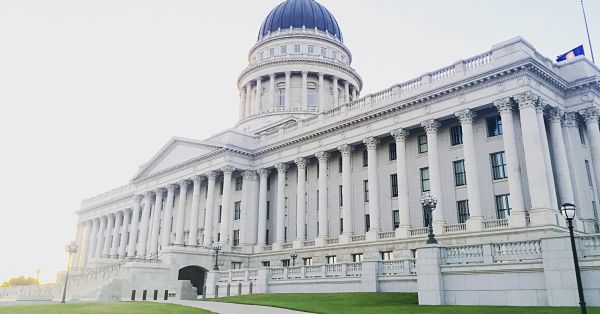by Satchel Johnsen and Alex Hamann
Russian hackers and rigged voting systems aren’t the biggest threat to American democracy. Rather, in the aftermath of the November 8 election we must reflect on our own behaviors and attitudes as an American people. The preservation of American democracy depends on educating future leaders on college campuses about the essential importance of cultivating and maintaining a genuine respect for diversity of political viewpoints. The kind of demonization and delegitimization of those who supported, or at least accepted the outcome of Donald Trump’s election, is a disturbing response that threatens democratic legitimacy as well as the cohesion of our nation.
For the past year many of us couldn’t wait for November 9th to come and to end one of the most dreadful and divisive presidential elections in U.S. history. Many of us were shocked by the results of a Trump victory, including many of us NeverTrumpers. We were not happy that the Republican Party nominated such a flawed candidate who nearly derailed his campaign with sexually vulgar comments, racially charged rhetoric, and a shocking ignorance of public policy. Despite this, the American people spoke, and in a fair and decisive outcome elected Donald Trump as our nation’s 45th president.
Sadly, however, we are now witnessing protests challenging the election. These street and campus protesters certainly have a right to express their disappointment with the election outcome. However, they don’t have a right to question its legitimacy. Indeed, democratic legitimacy is the foundational bedrock of democratic governance and stability. In the broad sweep of history, democracy has been a rare gift. In Winston Churchill’s famous quip, “democracy is the worst form of government, except for all the others.” If you really care about social justice, you have to also care about the health of our democracy.
Further, it is one thing to point out a presidential candidate’s flaws, but another to target a candidate’s supporters. Targeting and stereotyping all, or most, of the 50 million people who voted for Donald Trump as racists and bigots is itself hateful and ignorant. Groups which claim to be inclusive and tolerant act hypocritically when they generalize that Mr. Trump’s supporters are bigoted and racist.
Yes, some Trump supporters behave in reprehensible ways. But their behavior does not represent the majority of Americans who voted for Mr. Trump. Post-election data simply doesn’t support the narrative that racism, sexism or other forms of bigotry were the motivator for Mr. Trump’s support. Other factors inspired Americans to vote for Mr. Trump, notably economic anxiety and cronyism in Washington. Many of Mr. Trump’s supporters are angry and believe they have been forgotten by coastal technocratic elites who values are alien to tens of millions working class Americans. In short, they feel that political elites are out of touch with the average American.
Arthur Brooks, president of the American Enterprise Institute, recently wrote a Wall Street Journal op-ed that helps us to understand a central dynamic of Donald Trump’s election. Brooks points out that for Americans work and dignity are strongly tied together. Since 1965 the percent of men outside of the workforce has risen from 10% to 22%; millions are underemployed and have given up looking for work. He further reports that, “the employment to population ratio for men aged 25 to 54 is 6.8 % lower than in 1930, in the teeth of the Great Depression.” This lack of work and opportunity fosters a loss of dignity, which in turn creates the perception that society is deteriorating. This analysis describes millions of America’s working class. This analysis has been told in memorable personal terms by J.D. Vance in his current autobiographical bestseller, Hillbilly Elegy.
Sadly, serious, thoughtful, data-driven analyses have also been ignored by too many on our college campuses. Once again, the issue does not have to do with the very real concerns about Donald Trump past statements and actions. What is problematic – in fact, very troubling – is the rejection of the legitimacy of the election outcome itself.
On our college campus this rejection is not limited to popular opinion among students. It has been reflected in student organization programming. For example, the dominance of the racism and bigotry narrative and the creation of “safe spaces” comes at the cost of rational debate and discussion. These are not helpful. They have only exacerbated division. Alternative perspectives are dismissed, while those who hold these views are vilified, if not explicitly at least implicitly. Especially troubling to the authors of this article is the seeming validation of these false narratives via chapel programming.
Democracy does not expect that we will all share the same viewpoint. Robust disagreement and debate stand at the center of a healthy democratic polity. But this democratic give and take, the process of contending ideas, must be anchored in a respect for other points of view. Civility, and democracy itself, is threatened when disagreement with one perspective is cast as bigotry and hate. At the end of an election cycle, Americans must recommit themselves to the common welfare. Without this civility and respect for the legitimacy of the electoral process, democracy fails. Our college friends and peers should heed the example of President Obama who said to Donald Trump at their White House meeting: “I want to emphasize to you, Mr. President-elect, that we now are going to want to do everything we can to help you succeed because if you succeed, then the country succeeds.”
 Satchel Johnsen is a junior at Messiah College where he is completing his Bachelor of Arts degree in Politics with a concentration in Political Studies and a minor in History. Mr. Johnsen is the Chairman to his campus’ chapter of the American Enterprise Institute Executive Council and is the Vice President of the Messiah College Republicans. In his free time, Mr. Johnsen enjoys playing golf and watching football.
Satchel Johnsen is a junior at Messiah College where he is completing his Bachelor of Arts degree in Politics with a concentration in Political Studies and a minor in History. Mr. Johnsen is the Chairman to his campus’ chapter of the American Enterprise Institute Executive Council and is the Vice President of the Messiah College Republicans. In his free time, Mr. Johnsen enjoys playing golf and watching football.
 Alex Hamann is a student at Messiah College. He is currently completing his 2nd year of college, majoring in both Politics and Economic Development. Alex is a member of Messiah College Honors Program as well as its Humanities Scholars Program. This Spring, Alex will be studying and interning in Washington D.C. through Bestsemester’s American Studies Program. Currently, Alex is working on an article examining the effects of consolidating government power. During the summer Alex lives and works in Bel Air, Maryland.
Alex Hamann is a student at Messiah College. He is currently completing his 2nd year of college, majoring in both Politics and Economic Development. Alex is a member of Messiah College Honors Program as well as its Humanities Scholars Program. This Spring, Alex will be studying and interning in Washington D.C. through Bestsemester’s American Studies Program. Currently, Alex is working on an article examining the effects of consolidating government power. During the summer Alex lives and works in Bel Air, Maryland.














